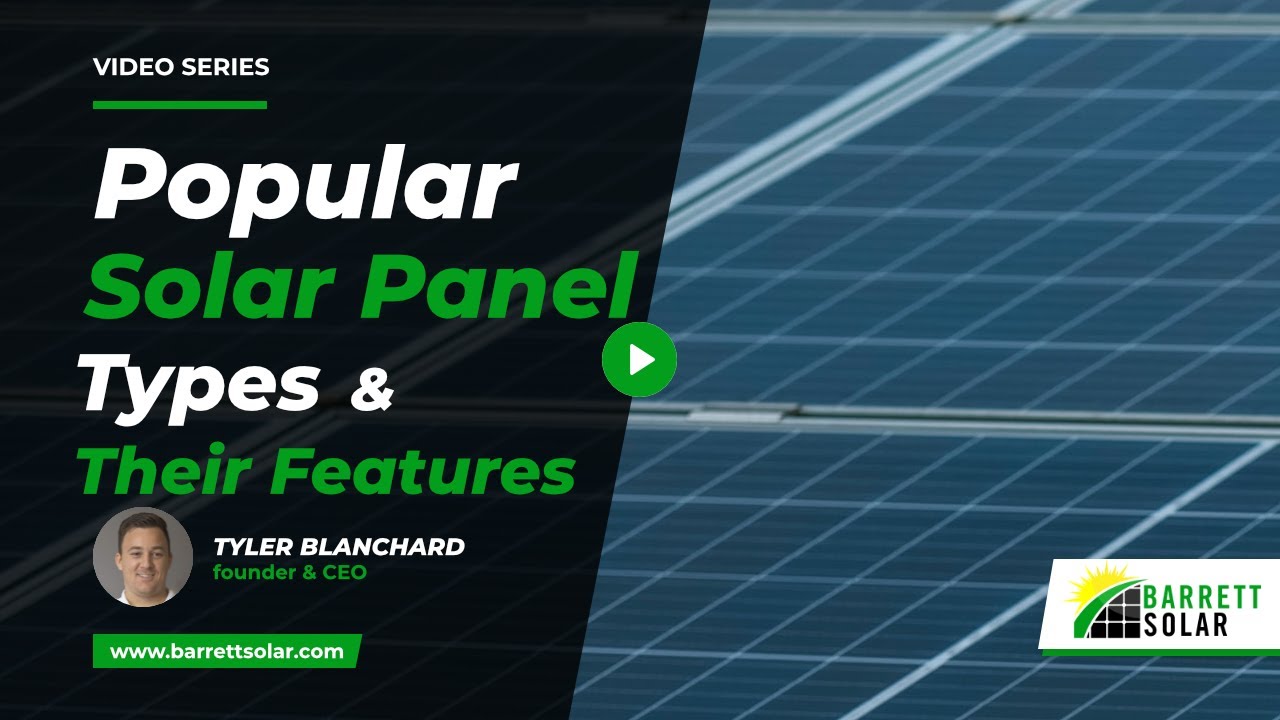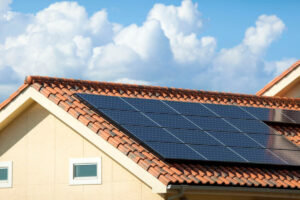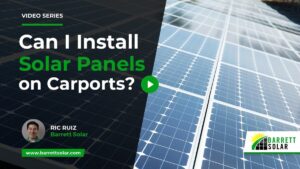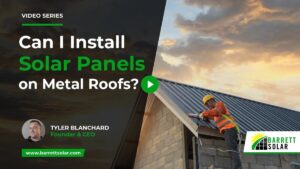When you’re working with your trusted solar partner to design and create your optimal solar power installation, one of the first things you’ll need to decide is which of the common solar panel types you will want or need to use with your project. There are two main types of solar panels that are used to generate large amounts of usable power, polycrystalline and monocrystalline, and only one is used in current installations.
Monocrystalline & Polycrystalline Solar Panel Types
The first type of solar panels to be developed were polycrystalline solar panels, and while polycrystalline panels can more easily get power on cloudy days or in low light conditions, they are considered older and less effective two solar panel types. They are less efficient, though they can be obtained much cheaper. Most reputable solar installers will not use polycrystalline panels any longer, in favor of newer and more efficient monocrystalline versions.
Monocrystalline solar panels are seen as the optimal choice between the two common types of solar panels. They can generate a larger amount of usable power from direct sunlight and are more efficient at generating power, resulting in more watts per square inch of the panel. This type of solar panel should be the only type offered by any reputable solar installer, and while they are more expensive than polycrystalline types, they are more reliable and last longer as well.
Each Type Will Have Wattage Differences
Depending on the application, the types of panels used will vary in their power generation capabilities. For residential installations, for example, the average panel will produce between 360 and 400 watts per panel and will have a more uniform and sleek appearance. These panels will generally be all black, including the frames surrounding the panels themselves.
Commercial installations, installations on non-residential outbuildings, or ground-based installations will often use a less sleek-looking and aesthetically pleasing panel, though they will also have a much greater potential power output. The types of solar panels frequently used for these applications will generate as much as 450 watts per panel, making them a more potent choice where appearance isn’t as big of a factor.
Panels Will Differ In Their Outputs & Efficiencies
There are generally going to be two options in solar panel quality and efficiency, even when using all monocrystalline panels. Mid-level panels will often be considered to be operating within optimal levels if, after 25 years, they produce more power at 80%-82% efficiency or greater. Top-quality panels will be considered optimal if they retain more than 90% efficiency after 25 years, with anything less than that being a potential cause for replacement.
Different Solar Panel Types Will Have Different Warranty Coverage
No matter what type of panel you choose, various manufacturers will have differing warranty coverage on the panels, as well as for the labor to install or replace them. Be sure you read the warranty details closely.
Efficiency Warranty
The efficiency or degradation warranty is what will cover the panels’ replacement if they fall below the normally-accepted efficiency levels before the warranty expires.
Product Warranty
The product warranty is the standard warranty that will protect the panels against defects in workmanship or manufacturing for up to 25 years.
Labor Warranty
A labor warranty can be important for any unforeseen damages, repairs, or replacements that may not be otherwise covered. This warranty will cover the labor needed to perform the replacement.
Solar Panel Types: Barrett Solar Has The Right Panels For Your Solar Solution
If you would like more information on what solar panel types are available for your application, reach out to us today for answers to any questions you may have, or to get started on a free quote.







